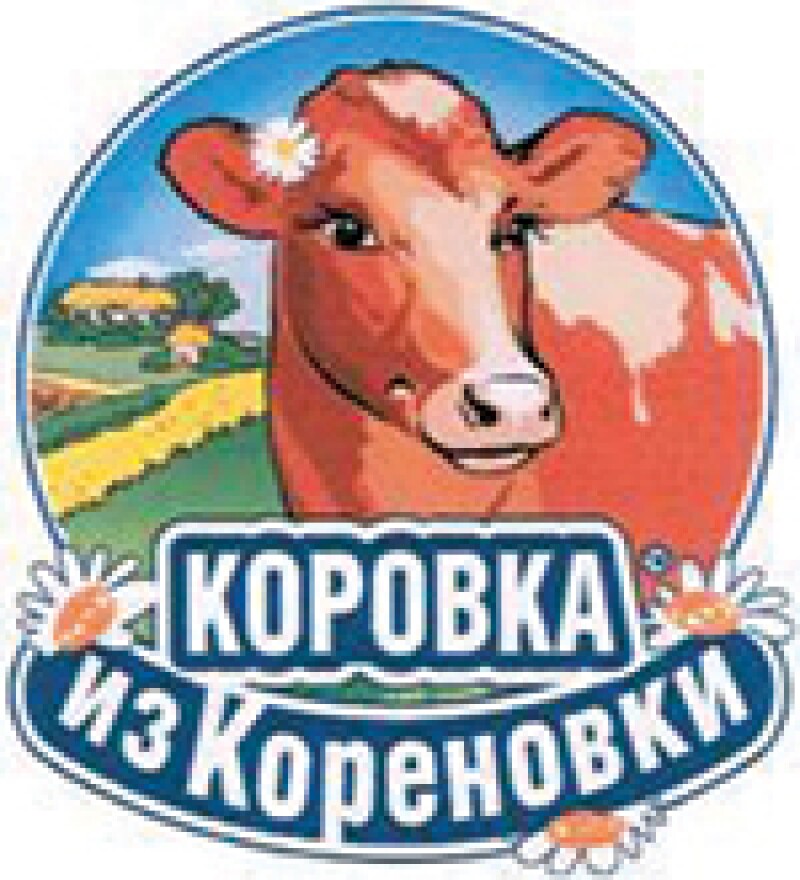Sometimes it is difficult to predict which is more lucrative – to toil over a trade mark and produce goods or do nothing but sue infringers. A CJSC Renna Holdin obtained trade mark registration number 421859 for a figurative trade mark with the word element "moo cow from Korenovka" (pictured; Korenovka is the name of a village).

Later on, the owner of the trademark initiated a court action against Kuban Korovka Ltd (moo cow from Kuban – again the name of a region in Russia). The claim was routine: to stop unlawful use of the designation confusingly similar to the registered trade mark, destroy the counterfeit products and award compensation to the plaintiff (compensation is an alternative to damages and needs no evidence to prove damage).
The commercial court did not grant the claims of the plaintiff. The judgment was appealed but without success. The judgment was further appealed to a higher court which cancelled the previous judgments and the case was sent down to the first instance court for re-examination. The first instance court examined the case from the beginning and allowed the plaintiff's claims.
The respondent appealed to the appeal court though without success. The respondent then appealed the judgment at the IP Court. The respondent argued that the owner of the trade mark did not produce the products marked by the controversial trade mark.
The IP Court stated that the courts of lower instances correctly inferred that infringement of rights for the trade mark took place. The respondent indeed produced dairy products and marked them with the plaintiff's trade mark. The compensation claimed by the plaintiff was double the cost of the infringing products.
The respondent argued that his designation was not confusingly similar. However the court did not accept his position all the more because earlier the respondent had tried to register his designation but his trade mark application was rejected by the patent office. The IP court noted that during previous hearings at lower courts those courts repeatedly asked the respondent to provide information on the quantity of the products produced under the controversial trade mark but the respondent avoided providing that information.
Following requests by the plaintiff the court of first instance sought a large amount of evidence from the distributors of the respondent, including from the companies which manufactured packages of dairy products. The court calculated the quantity of the products sold by the respondent and found that the plaintiff correctly calculated the amounts and doubled them as allowed by the law. The court also noted that it could not diminish the amount of claimed compensation because this was the result of accurate calculation (unlike the case where the plaintiff could simply claim compensation without explaining why in which case the court could moderate it at its discretion).
The result was that the court awarded compensation to the plaintiff of more than Rb114 million ($2 million) and this, after the value of the Ruble shrank twofold (!) against the dollar otherwise the compensation would be some $3.5 million. The compensation is indeed unusually high for the Russian courts but certainly very much educational for future infringers.

|
Vladimir Biriulin |
Gorodissky & PartnersRussia 129010, MoscowB. Spasskaya Str25, stroenie 3Tel: +7 495 937 6116 / 6109Fax: +7 495 937 6104 / 6123pat@gorodissky.ru www.gorodissky.com










